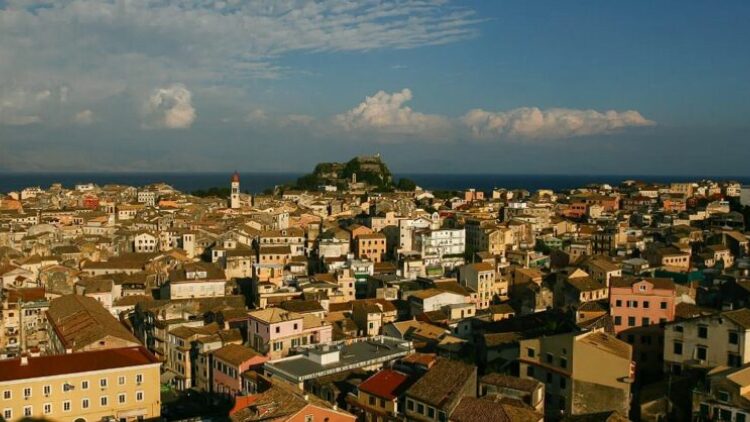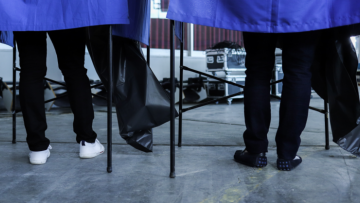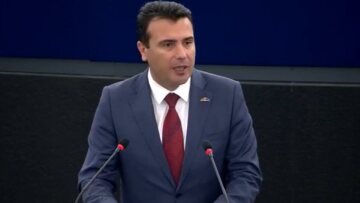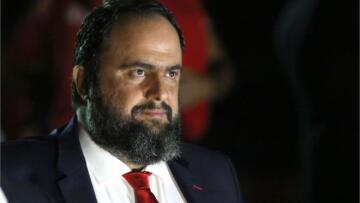
Why everyone wants and respects Lucas Papademos
Why everyone wants and respects Lucas Papademos
The former ECB VP speaks in soft tones, and as it is said, he was asked to take on a more active role in the country’s economics
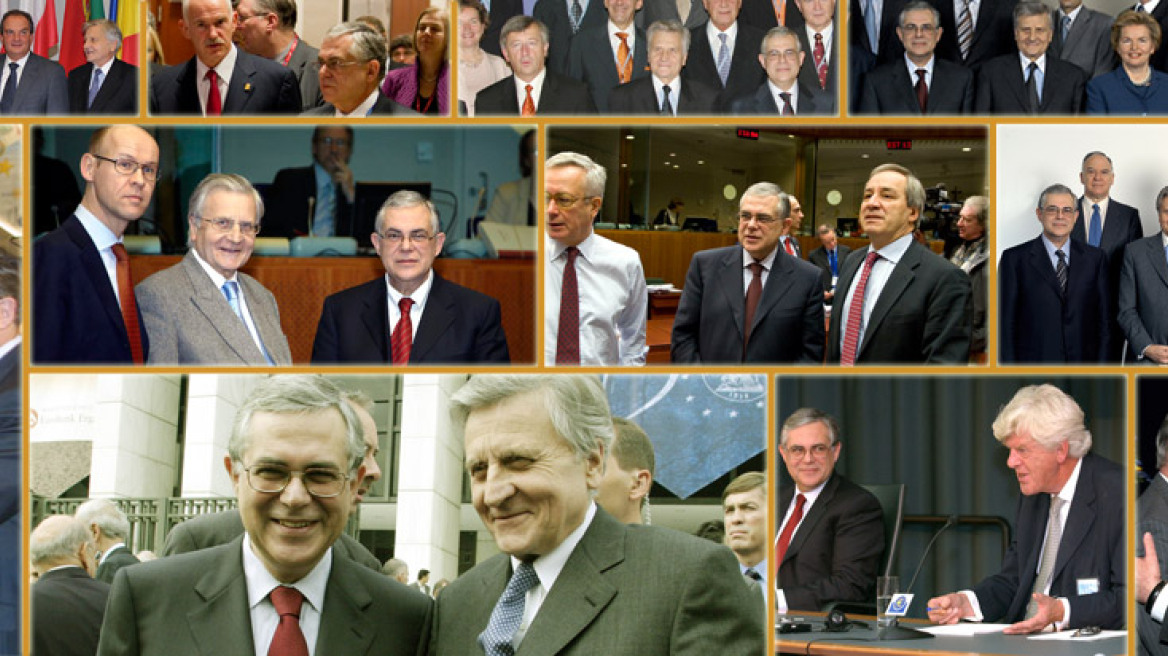
UPD:
The distance between Boston and Harvard University and Maximou Mansion is about 7000 miles: certainly less than what Loukas Papademos has walked in his life, when on January 28th, 2011, at 14.40 local time, he entered the university classrooms once more to teach students of Macroeconomic Policy, thinking it unlikely that at some point he would be asked to become Prime Minister.
He is, therefore, the second banker who becomes the head of state in the last 25 years (after Xenophon Zolotas) and the third in the history of Greece. His big “weapon” is undoubtedly his excellent relations with the whole of the EU elite, and especially with Frankfurt’s “war council” (Merkel, Sarkozi, Rehn, Schauble, Barroso, Rompuy, Draghi).
No one ever doubted his skills while he was VP of the ECB. Germany trusts him completely and calls him “the hawk of anti-inflationary policy”, which is Germany’s “bible”, since - along with Jean-Claude Trichet - they fully concurred with the economic imperatives of Germany.
The former ECB VP speaks in soft tones, and as it is said, he was asked to take on a more active role in the country’s economics right before his tenure in the ECB was complete (summer of 2010). It was the second time that the president of PASOK called on him to take part in the party. The first is rumoured to have been in 2009, when he was asked to head the party’s Euroballot. His rumored direct involvement in government, as it happens, did not find many supporters within the government itself.
For this reason, he was chosen by George Papandreou in autumn 2010 as the solution of an unremunerated adviser with an office in Maximou Mansion, although it is said that he almost never used it, since it was most convenient to work in the Bank of Greece building, where he has organized support staff.
Close associates of former Finance Minister Giorgos Papakosntantinou, when asked in the past about the Harvard professor’s exact role, gave no clear answers about what he does exactly, also pointing out a possibly “annoying” intervention of Papademos in the internal affairs of the country.
He is, therefore, the second banker who becomes the head of state in the last 25 years (after Xenophon Zolotas) and the third in the history of Greece. His big “weapon” is undoubtedly his excellent relations with the whole of the EU elite, and especially with Frankfurt’s “war council” (Merkel, Sarkozi, Rehn, Schauble, Barroso, Rompuy, Draghi).
No one ever doubted his skills while he was VP of the ECB. Germany trusts him completely and calls him “the hawk of anti-inflationary policy”, which is Germany’s “bible”, since - along with Jean-Claude Trichet - they fully concurred with the economic imperatives of Germany.
The former ECB VP speaks in soft tones, and as it is said, he was asked to take on a more active role in the country’s economics right before his tenure in the ECB was complete (summer of 2010). It was the second time that the president of PASOK called on him to take part in the party. The first is rumoured to have been in 2009, when he was asked to head the party’s Euroballot. His rumored direct involvement in government, as it happens, did not find many supporters within the government itself.
For this reason, he was chosen by George Papandreou in autumn 2010 as the solution of an unremunerated adviser with an office in Maximou Mansion, although it is said that he almost never used it, since it was most convenient to work in the Bank of Greece building, where he has organized support staff.
Close associates of former Finance Minister Giorgos Papakosntantinou, when asked in the past about the Harvard professor’s exact role, gave no clear answers about what he does exactly, also pointing out a possibly “annoying” intervention of Papademos in the internal affairs of the country.
The discomfort became even more apparent when rumours in Spring 2011 spoke of a diarchy in the economy team, as it was said that the former ECB VP would take on the role of minister. It is also said that before the recent reshuffle in the summer of 2011, Evangelos Venizelos proposed to Mr. Papandreou that Mr. Papademos take over the Finance Ministry. Papademos himself rejected this proposal, and as a result Mr. Venizelos took over the Ministry, as well as being a party VP and a deputy Prime Minister.
It is also said that Mr. Papademos was aware from the developments relating to the Greek and European economy since 18 months ago. From the permanent support mechanism for the Eurozone, and the restructuring of the 110 billion euro Troika loans, up to the reduction of the leanding rate from 5.2% to 3%-4%.
Along with Jean-Claude Trichet, former ECB president, with whom he enjoyed a close relationship, Mr. Papademos clearly favored the adoption of policies that facilitated the country in difficult times, such as the acceptance of Greek government bonds as a guarantee to finance Greek banks. There were a few times when he even “tolled the bell” for the government and the PM, either as ECB VP, or - later - as an adviser. His position was always that of measures that would lead to a financial consolidation of the country and reassure the markets, the strength of which he does not underestimate.
Apart from markets, Lucas Papademos does not underestimate social reactions. Although a technocrat, he takes this serious factor into account, considering that if he does not ensure a degree of social consensus, the program is in serious danger of failing.
Although loyal to the deflationary line, he believed, and still believes that the country needs development injections, in order to be able to stand on its own feet and achieve the MoU’s objectives.
It is also said that Mr. Papademos was aware from the developments relating to the Greek and European economy since 18 months ago. From the permanent support mechanism for the Eurozone, and the restructuring of the 110 billion euro Troika loans, up to the reduction of the leanding rate from 5.2% to 3%-4%.
He was the first to speak of a “bubble” in the Greek stock market.
Mr. Lucas Papademos was the man - being governor of the Bank of Greece (a position entrusted upon him by then PM Andreas Papandreou) - did not hesitate to speak about the stock market “bubble” in 1999, causing uproar. A few years later, when New Democracy was in power, he went through some difficult moments when the figures that were presented when the country joined the European Monetary Union were challenged, which resulted in some directly aggressive questions from reports, while 2007 French President candidate Nicolas Sarkozy launched an attack against him, challenging the neutrality of ECB directors. However, all this was overcome, presumably because his own personality overrode the difficulties.Along with Jean-Claude Trichet, former ECB president, with whom he enjoyed a close relationship, Mr. Papademos clearly favored the adoption of policies that facilitated the country in difficult times, such as the acceptance of Greek government bonds as a guarantee to finance Greek banks. There were a few times when he even “tolled the bell” for the government and the PM, either as ECB VP, or - later - as an adviser. His position was always that of measures that would lead to a financial consolidation of the country and reassure the markets, the strength of which he does not underestimate.
Against the “haircut”
Over the past weeks, through articles in the “Financial Times”, he took a stand against the broad restructuring of the Greek debt, the large “haircut”, considering that this involves great risks and can have unforeseen consequences. Now, he is required to manage the restructuring of the already determined “haircut” in order to prevent the risks which he warned against.Apart from markets, Lucas Papademos does not underestimate social reactions. Although a technocrat, he takes this serious factor into account, considering that if he does not ensure a degree of social consensus, the program is in serious danger of failing.
Although loyal to the deflationary line, he believed, and still believes that the country needs development injections, in order to be able to stand on its own feet and achieve the MoU’s objectives.
UPD:
Ακολουθήστε το protothema.gr στο Google News και μάθετε πρώτοι όλες τις ειδήσεις
Δείτε όλες τις τελευταίες Ειδήσεις από την Ελλάδα και τον Κόσμο, τη στιγμή που συμβαίνουν, στο Protothema.gr
Δείτε όλες τις τελευταίες Ειδήσεις από την Ελλάδα και τον Κόσμο, τη στιγμή που συμβαίνουν, στο Protothema.gr
ΡΟΗ ΕΙΔΗΣΕΩΝ
Ειδήσεις
Δημοφιλή
Σχολιασμένα






















